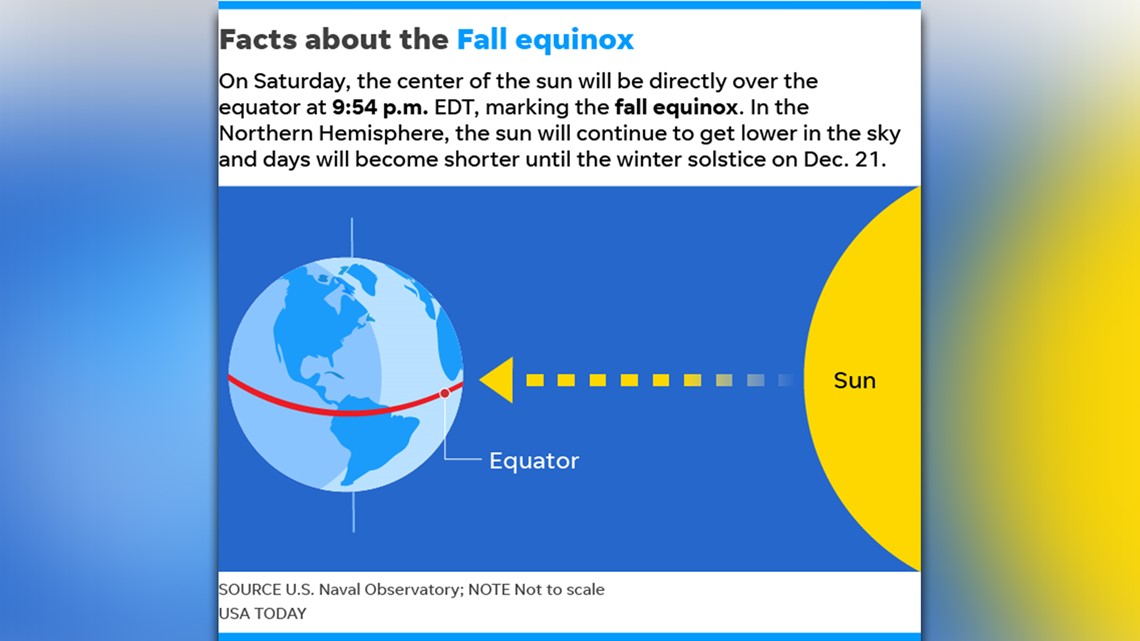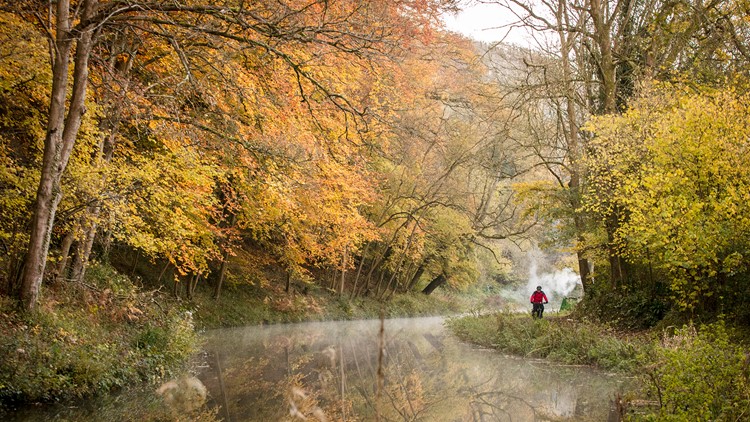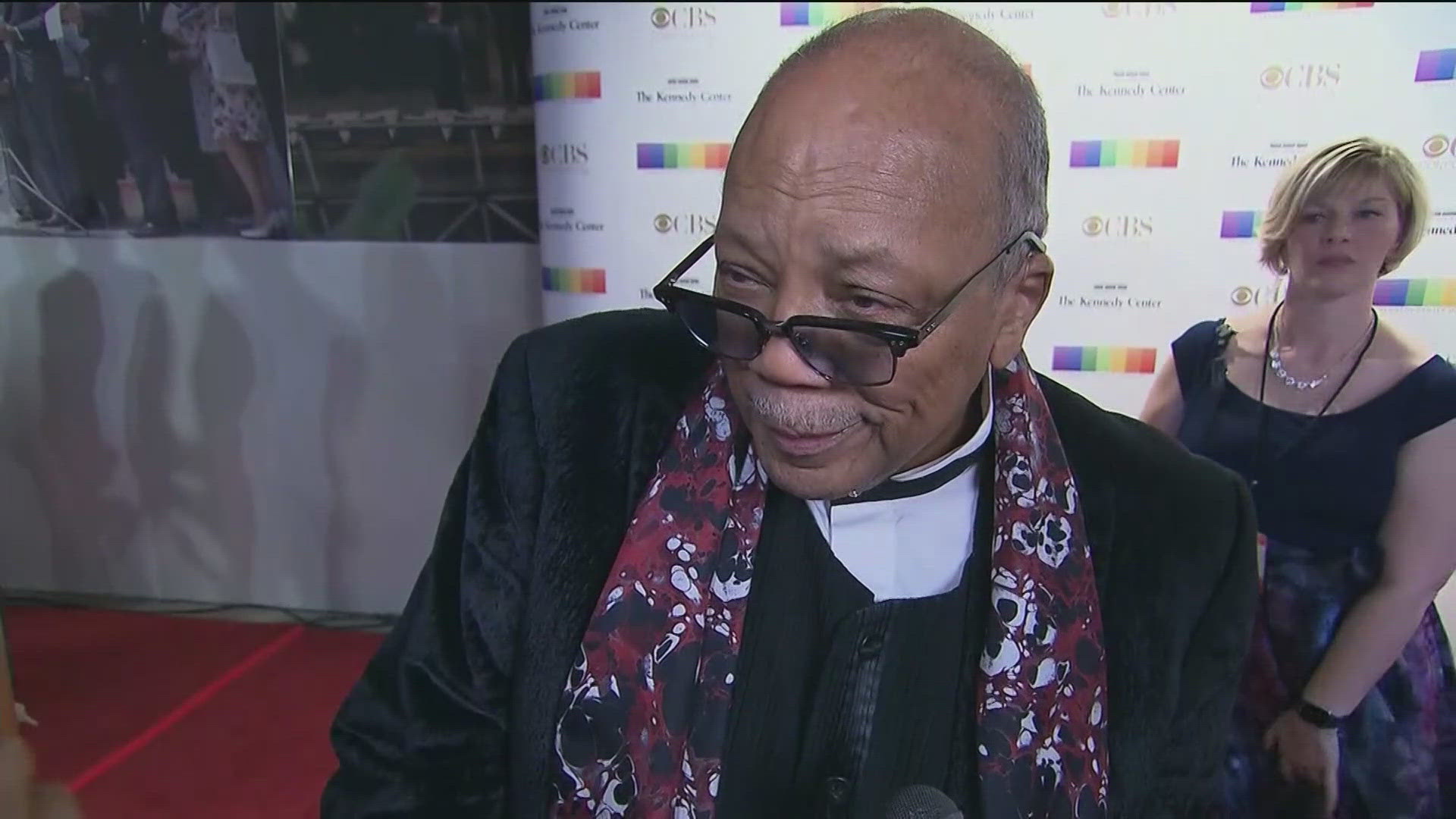Goodbye sweat stains. Hello pumpkin spice.
Our long, hot, swampy, soggy, fiery summer is finally coming to an end on Saturday with the autumnal equinox, which marks the beginning of fall in the Northern Hemisphere.
Autumn arrives Saturday at 9:54 p.m. EDT (that's 8:54 p.m. CDT, 7:54 p.m. MDT and 6:54 p.m. PDT).
At a precise moment each September, on either the 21st, 22nd or 23rd, the sun appears directly above the equator, marking the exact time of the autumnal equinox here in the Northern Hemisphere.
Below the equator in the Southern Hemisphere, it's known as the vernal or spring equinox and marks the beginning of spring. So if you're in need of more guaranteed warmth and sunshine in the months ahead, head way down south to countries such as Argentina, South Africa or Australia.
Meanwhile, if you're looking for cool, fall-like weather the next couple of weeks here in the U.S., head for the Northwest or north-central states. Warmer-than-average temperatures are forecast for most of the eastern half of the U.S. for the final 10 days of September, according to the Climate Prediction Center.


The word equinox comes from the Latin words "aequalis" and "nox," meaning equal night. On the autumnal (and the spring) equinox, day and night are both roughly 12 hours long over most of the world.
This will be true Saturday from as far north as Utqiagvik (formerly Barrow), Alaska – north of the Arctic Circle – to as far south as Wellington, New Zealand, the world's southernmost capital city.
In Utqiagvik, the sun rises Saturday at 8:07 a.m. and sets at 8:29 p.m. In Wellington, it rises at 6:11 a.m. and sets at 6:16 p.m. Day and night aren't exactly 12 hours long because the Earth's atmosphere refracts, or bends light, in an optical illusion that brings more daylight than there really is.
Another equinox fun fact: On Saturday, the sun rises due east and sets in due west for most of the world, except at the North and South Poles.
Although some people claim that the autumnal equinox is the "official" start of fall, there is no administrative or political organization that actually designates that.
Indeed, though astronomers say summer ends Saturday, meteorologists and climatologists say summer ended Aug. 31, the final day of the three hottest months of the year (June, July and August.)
According to the National Oceanic and Atmospheric Administration, the summer of 2018 tied for the USA's fourth-warmest summer on record, while the planet as a whole had its fifth-warmest summer on record.



